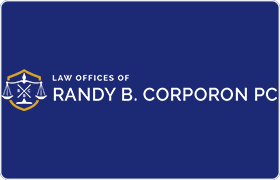Denver Family Law Lawyer, Colorado, page 3
Sponsored Law Firm
-
 x
x

Click For More Info:
-
Law Offices of Randy B. Corporon PC
2821 S. Parker Road Suite 555 Aurora, CO 80014» view mapDivorce & Family Law Clients First, Excellence Always!
You owe it to yourself and your loved ones to be represented by an experienced, high-quality attorney, with a track record of proven success.
800-976-8531
Includes: Collaborative Law, Domestic Violence & Neglect, Paternity, Prenuptial Agreements
Maria Theresa Balto Lopez
Elder Law, Estate Planning, Family Law, Trusts
Status: In Good Standing *Status is reviewed annually. For latest information visit here
FREE CONSULTATION
CONTACTHoward Flicker
Corporate, Family Law, Immigration, Social Security -- Disability, Estate Planning
Status: Inactive *Status is reviewed annually. For latest information visit here
FREE CONSULTATION
CONTACTMichelle L. Searcy
Social Security -- Disability, Family Law, Wills & Probate, Civil Rights
Status: In Good Standing *Status is reviewed annually. For latest information visit here
FREE CONSULTATION
CONTACTSusan A. Soklin
Bankruptcy, Contract, Family Law, Real Estate
Status: In Good Standing *Status is reviewed annually. For latest information visit here
FREE CONSULTATION
CONTACTRobert A. Schuetze
Litigation, Leisure, Estate Planning, Family Law
Status: In Good Standing *Status is reviewed annually. For latest information visit here
Jennifer L. Motycka
Social Security -- Disability, Wills & Probate, Family Law, Business Organization
Status: In Good Standing *Status is reviewed annually. For latest information visit here
Todd A. Brownell
Family Law, Child Support, Adoption, Divorce & Family Law
Status: In Good Standing *Status is reviewed annually. For latest information visit here
Rebecca M. Pepin
Litigation, Wills & Probate, Estate Planning, Family Law
Status: In Good Standing *Status is reviewed annually. For latest information visit here
Matthew A. Crowther
Real Estate, Litigation, Estate Planning, Family Law
Status: In Good Standing *Status is reviewed annually. For latest information visit here
Sara Lindsay Keane
Family Law, Traffic, Divorce, Farms
Status: In Good Standing *Status is reviewed annually. For latest information visit here
 Randy Corporon Aurora, CO
Randy Corporon Aurora, CO